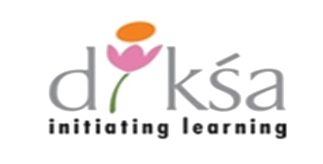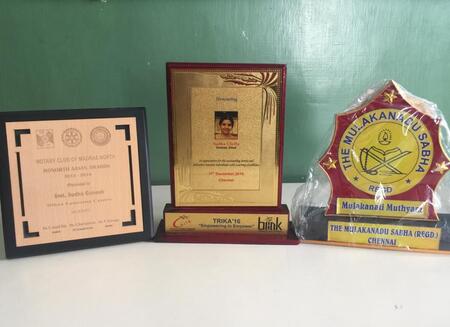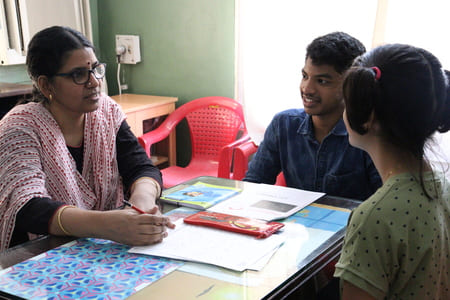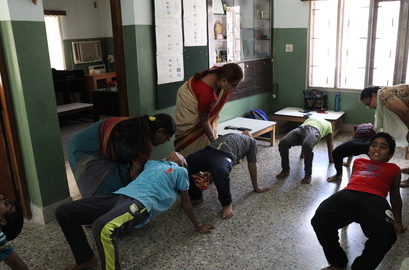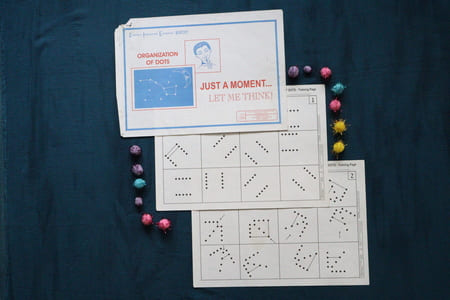The field of dyslexia is quite well known and popular today. Some even call it glamorous because of its intriguing and hidden nature and iconic names associated with it. Many people have often asked me how I got into this field back in 1990 and what has helped me sustain for three decades. I must say that my entry was sheer serendipity and my sustenance is pure because of the immeasurable rewards that my work continues to offer me.
While it might appear that over the three decades, I may have helped several children realize their potential, the truth is exactly the other way round. My experience as a special educator has made me the person I am today and I am deeply indebted to my students, parents, co-professionals, and my well-wishers for teaching me gratitude, acceptance, humility, resilience, hope, and a truly karmic orientation.
I start by presenting my experiences and follow it up with how special education has helped me grow as a person. Of course, as I wrote this article, I realized that it was an enjoyable journey of self-reflection.
My Journey
My entry into this field and the first ten years
The year 1990 was a very significant year for me. Three big things happened – I had just completed my post–graduation in Child development, I got married and I also met Mrs. Lalitha Ramanujan, founder of Alpha to Omega Learning Centre, Chennai who would subsequently become my guru and inspiration to embark on a long career in the field of dyslexia.
I did my first workshop on dyslexia in Alpha to Omega in the year 1990. It was conducted by Ms. Hazel McKay from the Hornsby Centre, London. After that, I joined Alpha to Omega Learning Centre, Chennai and started working as a remedial teacher directly under the guidance of Lalitha.
That was a time when special education was at a fledgling stage and Alpha to Omega was doing a lot of pioneering work, bringing in expertise from across the world, conducting international conferences etc. It was an exciting ten years, with of course a few breaks when I started my family. The learning and exposure was phenomenal.
In the year 2000, I decided to start my own little center for dyslexic children located at home. I named it like learning center. diksa means initiation and I strongly felt that as teachers we can only initiate learning. Why did I do this? My husband had just started his own consulting practice and my children were getting busy with their school and co-curricular activities and there was a need for me to be available to them at home. The simple goal was to be productive and put my skills to use.
When I started my centre, little did I realise that I would end up being so deeply involved in the field in the coming years.
The entrepreneurial journey
When I started diksa, students came purely by word of mouth. Slowly the number of children started increasing and made me move to a bigger house with a separate space for myself and finally to a separate centre in the year 2005.
In addition to remedial for children, I started training teachers who wanted to teach dyslexic children.
By then it was 15 years since I had started working with children with dyslexia and much had changed in the environment.
Parental attitudes were more accepting. We also had more parents coming for tutor training.
Main stream schools were more open and accepting. The CBSE, ICSE and State boards started giving concessions such as extra time, second language exemption etc. The NIOS board was becoming more popular. More special schools were coming up and reaching out to children with special needs.
Many main stream schools were setting up resource centres within their campus.
Offerings at diksa
At diksa we had four different offerings to meet specific needs.
-
- One was the pull out program where children identified with moderate to severe difficulties were sent to us (by mainstream schools) during school hours for at least two years. After this they were able to go back to full time school.
- We then had after school remedial for children with mild difficulties.
- We also had the Instrumental Enrichment program open to all main stream children. This was to build the thinking skills of the children and thereby enhance their IQ.
- In addition, we had a tutor training program conducted once a year to train teachers interested in teaching children.
The program used to cover remedial intervention strategies on phonics, reading, spelling, comprehension, math and screening for dyslexia.As I was building diksa, I was also simultaneously involved in conducting external tutor training programs. I used to visit other special schools either to run full-fledged programs or as faculty for their own programs.
diksa also conducted several awareness programs in mainstream schools for parents and teachers.
diksa gradually expanded and we soon had ten teachers, most of them trained in-house. We also had a couple of volunteers.
The past eight years
As we gained more experience, we were confronted with the complexity of the education system around us – multiple boards, multiple syllabus and multiple languages. Teaching and learning math seemed to be a big challenge across boards.
Similarly, we were seeing children with multiple learning issues – what we may call neuro diversity.
We realized the need to develop well-researched and proven strategies to help these children.
From 2012, we have been investing a lot of effort in this area.
Sensory motor integration
We met Mrs. Nirmala Solanki V, a pioneer in the field of Occupational Therapy and worked with her to develop a home program to address the problems associated with sensory motor integration. Mrs Nirmala helped us realise that learning happens from gross to subtle in a spiral manner and the gross skills being the physical aspect of balance, movement, coordination and the subtler being sitting tolerance, attention and learning.
This program which was extracted from the principles of occupational therapy is actually a set of simple, structured and sequential exercises which have become an integral part of our remedial program and our everyday routine. In fact, Mrs Nirmala personally trained two of our teachers who have been leading this program ever since. We remain eternally grateful to her.
Math
Over the years we began to realise that it was not just the children but the remedial teachers themselves who had math phobia and anxiety. We felt there was need to remove this fear at multiple levels and make math learning which is a life skill, fun.
We were fortunate to be led to the right person in our quest to build the right solution for this at diksa.
We met Mr Sundaram who has dedicated his life to training teachers to bring math out of the text book and into the real life experiences of children. Under his guidance we developed the Grow with Math program which again is structured, sequential and cumulative. We developed a lot of inexpensive teaching aids and several hands on activities for each concept, under his guidance.
Initially we successfully tried out all these strategies with our own children and we are now able to train other teachers who are interested in learning these strategies.
Yoga
It was a long held desire for me to integrate yoga into our curriculum. We finally achieved this goal in the year 2017. Mr. Chandiran our yoga instructor developed customized modules to meet the needs of each child. It was wonderful to see that our children were able to learn and perform several complex asanas. There was significant improvement in their behaviour, attention span and learning ability.
Instrumental Enrichment program for adults
While a lot of attention was being given to children, we realized that there were a considerable number of undiagnosed dyslexic adults. These young men and women were facing challenges in their personal and / or professional lives. Some of these adults were referred to us through counselors. At that stage in their lives, the issue was beyond reading, writing and comprehension. It was impacting the quality of their everyday lives in areas such as relationships, career, money, time, focus and so on.
We leveraged the Instrumental Enrichment program and adapted the mediated learning experience to address the deficit cognitive functions of these young adults. The program involves paper-pencil activities through which thinking skills are mediated. Skills such as planning, analysis, synthesis, logical reasoning, decision making, problem solving, hypothesizing, empathetic communication, perspective building are developed.
It has made a significant difference especially when it complemented the counselors efforts.
What I have learnt
I started in the year 1990 as a learner and I am proud that I continue to be one after 30 years. My journey as a special educator has impacted me at several levels.
Personally
This whole concept of learning – how a young child with phenomenal potential blossoms into an adult with his own individuality continues to fascinate me.
Special education has taught me to be more accepting, non-judgmental, to have faith and patience. I see courage, resilience and hope in each of my students who despite their challenges, persevere through their academic journey and come out as winners. They, along with their supportive parents have taught me not to take anything for granted and believe that life is full of opportunities. Also, it has taught me the important values of gratitude, humility and delayed gratification.
As a parent
I feel that it is because of my role as a special educator that I am able to communicate better with my children. It has also helped me respect and encourage their talents beyond academic skills and appreciate their individuality.
As a professional
Special education has taught me that rewards can come in different forms and colours. The biggest reward for me is when my students begin to believe in themselves, set goals and go about achieving them. They have all evolved as mature adults and seeing them today, it is hard to believe that they were once struggling with their own learning challenges. Many of them have gone on to carve out successful careers for themselves in various fields such as counseling, architecture, art, medicine, engineering, software, business, food, design, media and so on.
Special education has also introduced me to several selfless, dedicated, passionate and accomplished individuals who continue to inspire me. Teachers at diksa (many of them are parents) are an everyday source of strength and motivation. Many of them are highly qualified professionals who have given up promising careers and added value to diksa and to the larger community.
As a social entrepreneur
Special education has taught me to motivate and lead a team when the rewards are neither monetary nor immediate. I am proud to say that we are an all-woman team. We are also proud that we have somehow managed to remain financially self-sufficient all these years. Needless to say, it is the cause that has kept us together.
As a career woman
I realise that sustaining my professional interest required a lot of flexibility and staying very grounded. It also required me to be adaptable and sensitive to the demands of my various roles.
I believe it is possible for every woman to build a career provided that she thinks long-term but at the same time is very grounded to current realities.
What the future looks like
The future of remedial and tutor training will be influenced by technology. Strategies, work sheets, activities and so on are all available at the press of a button. We are probably moving towards a phase where remedial and tutor training will be virtual. In addition to all the skills, special educators will also need to learn to use technology to their advantage.
However, they should not lose track of the individual child who needs not only reading and writing skills but also a role model, a source of love, acceptance and emotional connect.
Teaching is considered a noble profession but within that, teaching special children has a privileged position.
Because… together with our students and parents, we have the opportunity to witness miracles.
This is what keeps me going!
-Mrs. Sudha Ganesh Chella
